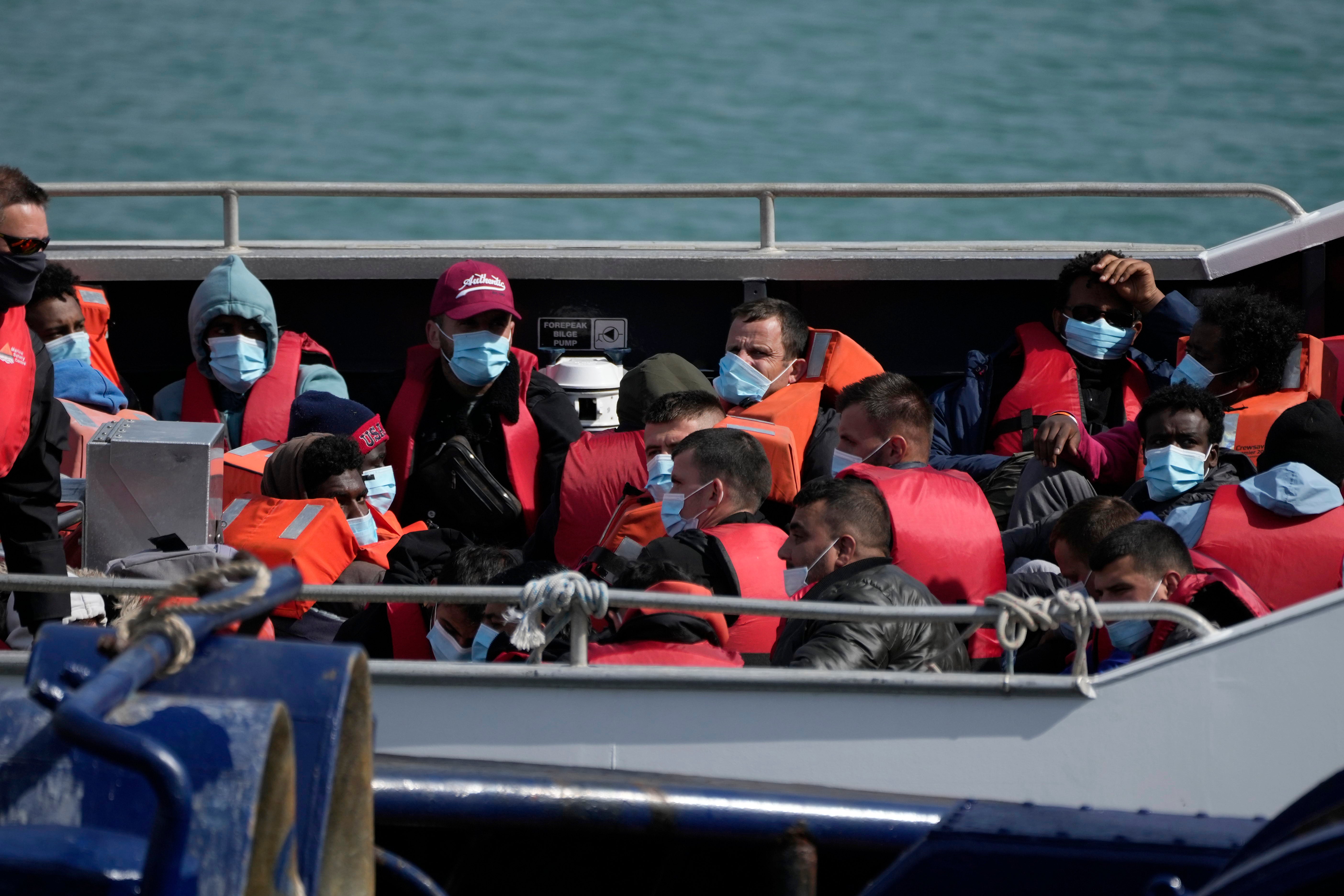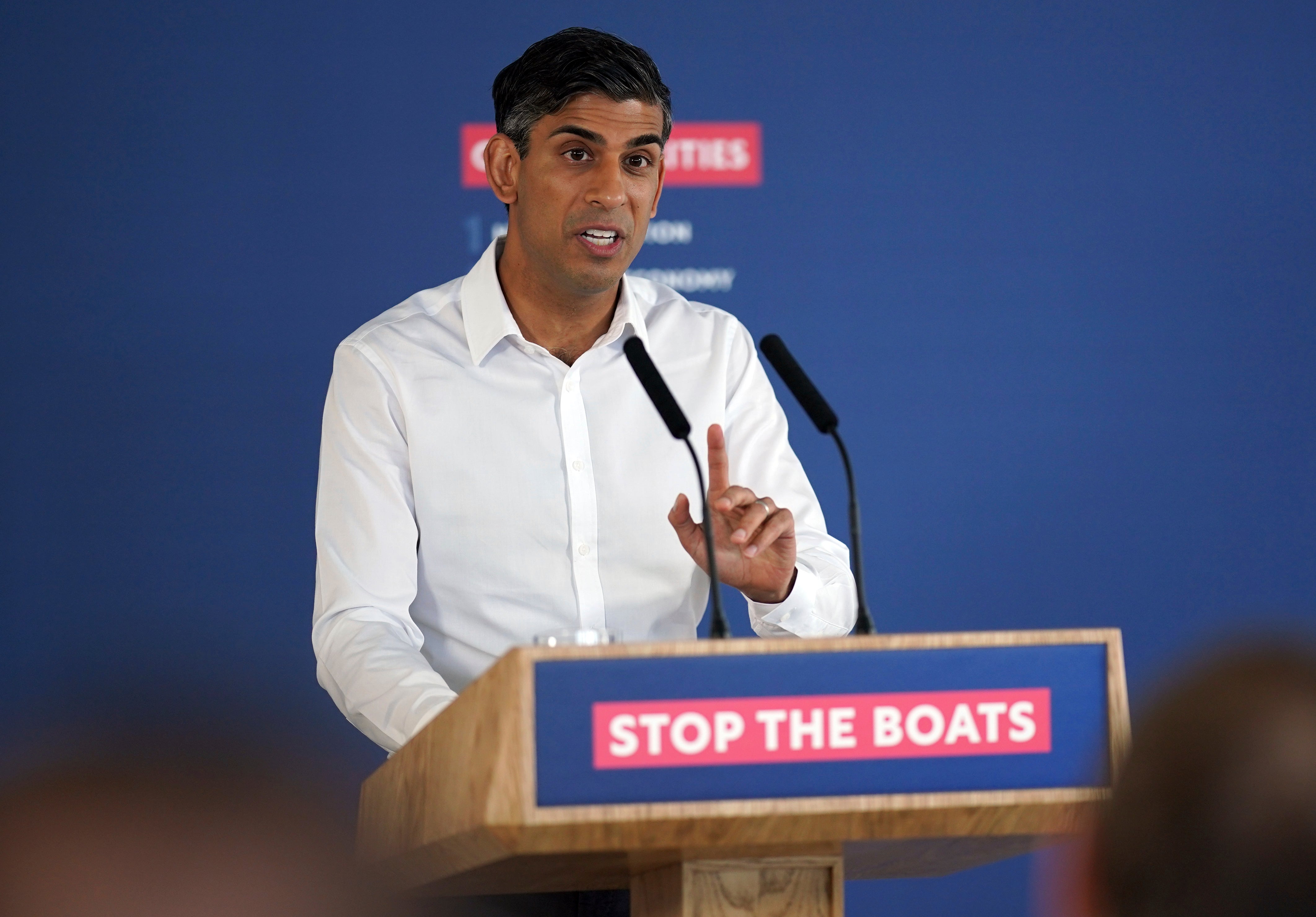Home Office estimates it will cost £169,000 to deport each asylum seeker under small boats bill
‘Not possible’ to assess whether Illegal Migration Bill is value for money because it may not deter enough Channel crossings
Your support helps us to tell the story
From reproductive rights to climate change to Big Tech, The Independent is on the ground when the story is developing. Whether it's investigating the financials of Elon Musk's pro-Trump PAC or producing our latest documentary, 'The A Word', which shines a light on the American women fighting for reproductive rights, we know how important it is to parse out the facts from the messaging.
At such a critical moment in US history, we need reporters on the ground. Your donation allows us to keep sending journalists to speak to both sides of the story.
The Independent is trusted by Americans across the entire political spectrum. And unlike many other quality news outlets, we choose not to lock Americans out of our reporting and analysis with paywalls. We believe quality journalism should be available to everyone, paid for by those who can afford it.
Your support makes all the difference.The government does not know how much its new small boats bill will cost or if it will achieve its core aim of deterring Channel crossings, an official assessment has found.
Documents published over three months after the Illegal Migration Bill was presented to parliament estimated that it will cost £169,000 to deport each asylum seeker - but it is unclear how many will be removed and what “third countries” will receive them.
The only existing deal is with Rwanda and the Home Office refused to publish the actual payments agreed, citing “commercial sensitivities” as a Court of Appeal ruling on the scheme looms.
An economic impact assessment said it was “not possible” to assess whether radical laws backed by Rishi Sunak and Suella Braverman would be value for public money, because “it is not possible to estimate with precision the level of deterrence the bill might achieve”.
The report estimated that at least 37 per cent of small boat arrivals would have to be “deterred” for there to be no additional cost to the taxpayer, but warned the bill’s effects were “highly uncertain”.
Yvette Cooper, Labour’s shadow home secretary, called the assessment “a complete joke”.
“By its own admission, this failing Conservative government is totally clueless on how much this bill will cost or what the impact of any of its policies will be,” she added.
“It suggests that if Rishi Sunak were actually able to deliver on his promise to remove every asylum seeker who arrives in the UK it would cost billions of pounds more even than the Tories’ broken asylum system today.”
Officials said that making a migrant decide against a small boat crossing could save eventual costs of £106,000 in the UK, but “the academic consensus is that there is little to no evidence suggesting changes in a destination country’s policies have an impact on deterring people from leaving their countries of origin or travelling without valid permission”.
Estimated calculations showed that it will still be more expensive to deport asylum seekers than process them in the UK, and there are currently no operational deportation agreements for asylum seekers.
“There is a risk that the practical complexities of the bill mean the bill will not be fully delivered,” the document said. “Any deterrence impact relies on the policy working as intended, with sufficient capacity to detain and remove an appreciable proportion of individuals in scope to a safe third country.”

It also warned that the laws could cause “unintended behavioural changes from migrants”, including people switching from small boats to lorries, other clandestine routes or fraud and overstaying visas.
The economic impact assessment outlined a raft of new costs stemming from the bill’s legal duty to detain and deport all small boat migrants, regardless of the merit of asylum or modern slavery claims.
They include the costs of increasing detention capacity, hiring and training more civil servants, paying private companies huge sums to “escort” people on deportation flights and increased legal challenges.
The report warned of “several further risks and uncertainties”, including the fact that there is currently insufficient detention capacity to hold all small boat migrants, and some may have to be released into other accommodation.
During a debate on the bill earlier this month, a government minister said they could only be sent to countries where Britain has struck “an agreement to take them back”, adding: “That is not at present the case, except in relation to Rwanda, but it may in future be the case in relation to other countries.”
The assessment said that even if the government manages to strike new Rwanda-style deals with other countries, they “may incur additional costs”. The UK has already paid Rwanda £140m and spent a further £1.3m defending legal challenges, with no one yet deported.
“Any agreements made with additional countries may incur similar costs, which have not been monetised in this assessment,” the document cautioned.
It comes after The Independent revealed that Home Office staff are already being pulled off the huge asylum backlog to re-train for the expected implementation of the bill in September.

Suella Braverman was grilled on the delay to the assessment when she appeared before parliament’s Home Affairs Committee earlier this month, with MPs and peers angry at being made to vote on the bill without knowing its costs.
The home secretary said there were “many unknown factors” involved, including legal action on the Rwanda scheme, but committee chair Dame Diana Johnson said the position was unacceptable for a bill “that is three quarters of its way through the House of Lords”.
The Home Office claimed that the experience of other countries with harsh asylum policies, such as Australia, “demonstrated the potential for the bill to reduce the number of people taking dangerous and unnecessary journeys”.
The home secretary said: “We cannot allow a system to continue which incentivises people to risk their lives and pay people smugglers to come to this country illegally, while placing an unacceptable strain on the UK taxpayer.
“I urge MPs and peers to back the bill to stop the boats, so we can crack down on people smuggling gangs while bringing our asylum system back into balance.”
But Enver Solomon, chief executive of the Refugee Council, said the document “fails to evaluate the true costs and consequences” of the new law.
“It would cause hardship, cost billions of pounds, and do nothing to alleviate the current crisis and pressures within the asylum system,“ he added.
”A new backlog of people stuck in limbo in the UK will be created on top of the more than 170,000 people already waiting for a decision on their asylum claim – while doing nothing to provide the safe routes that are a vital part of reducing the number of people who take dangerous journeys to reach the UK.”




Join our commenting forum
Join thought-provoking conversations, follow other Independent readers and see their replies
Comments